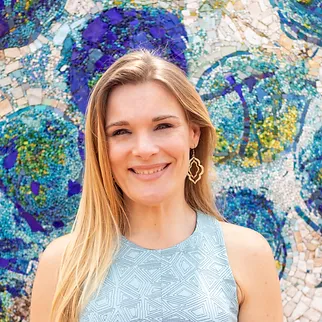
Cicilia Visser
Fellow since June 2025
Cicilia is a psychologist and executive coach, specialising in emotional and social development, workplace wellbeing, and identifying and developing high-potential individuals, including new and emerging leaders, to thrive in today’s complex, high-pressure environments.
As an executive coach, Cicilia supports managers in navigating the often underestimated psychological impact of leading people. She assists them in strengthening their interpersonal intelligence, communication skills, self-awareness, and the ability to build cohesive, emotionally attuned teams. She has worked extensively across South Africa and the broader African continent, conducting psychological assessments, leadership evaluations, and team development initiatives using action learning, observation, and dynamic group engagement strategies.
Currently completing her PhD at the University of Stellenbosch Business School, Cicilia is developing an AI-based coaching chatbot called EQuip to make emotional intelligence coaching more accessible, especially for young professionals of the Generation Z cohort. This innovative work reflects her core philosophy: that flourishing at work requires both psychological insight and scalable, inclusive support systems. Her qualifications include the following: MA Psychology (Cum Laude), Honours Psychology, PGCE, and B.SocSci in Psychology.
The Research Project
A study by Machová et al. (2020) found that Generation Z has the lowest emotional intelligence (EI) scores, despite valuing it highly. Emotional intelligence is crucial for Gen Z to differentiate themselves from similarly qualified applicants (Bano & Vasantha, 2022). Kastberg et al. (2020) also note that higher EI levels give Gen Z a competitive advantage, leading to more job offers, interviews, and overall career satisfaction. Coaching provides a platform that meets the unique learning needs of Gen Zers (Kasteberg et al., 2020) and has been successfully used to enhance EI (Boyatzis, 2018; Schaap & Dippenaar, 2017). However, in-person coaching has limitations, which AI coaching chatbots can circumvent, as it is scalable, more affordable, and less stigmatised (Chatterjee et al., 2021; Venkatesan et al., 2020).
The study aims to evaluate whether an AI coaching chatbot can enhance the emotional intelligence (EI) of Generation Z employees across three phases. Phase 1 involves conducting a scoping review to define the parameters of soft skills and their overlap with EI. This phase aims to determine the emotional intelligence and soft skills competencies, strengths, and deficiencies of Gen Z employees, as well as assess the methods companies use for training EI and soft skills within their Gen Z workforce.
Phase 2 is the pilot phase, during which the AI coaching chatbot, EQuip, is developed using Trait EI, incorporating Cognitive Behavioural Coaching and the ABCDEF model. This phase involves programming the chatbot, EQuip, testing it with coaching experts, and refining and improving it based on feedback from the pilot tests.
Phase 3 is the implementation phase, during which EQuip is tested through a two-month randomised control trial involving Generation Z employees from various organisations. The Gen Z participants and their managers will undertake a pre-test/post-test EI assessment to compare results and ascertain whether their EI has improved. The Gen Z participants will also complete an evaluation to provide feedback on their experience with AI coaching technology, specifically ChatGPT, in enhancing their EI.
